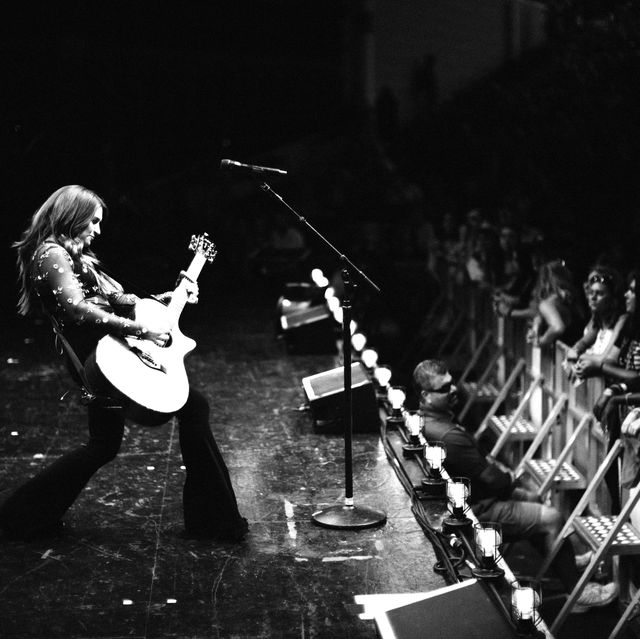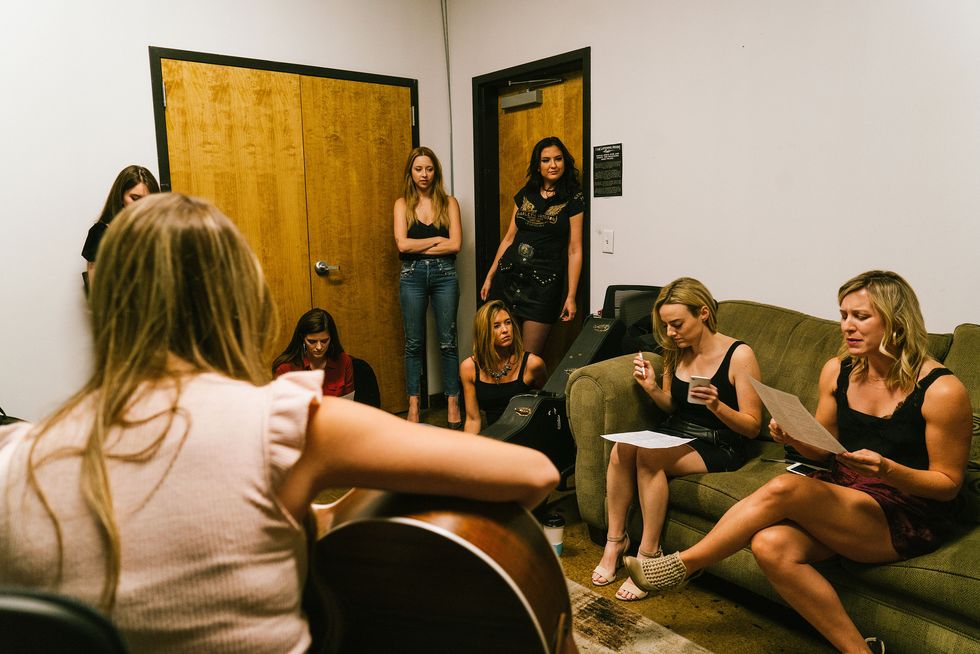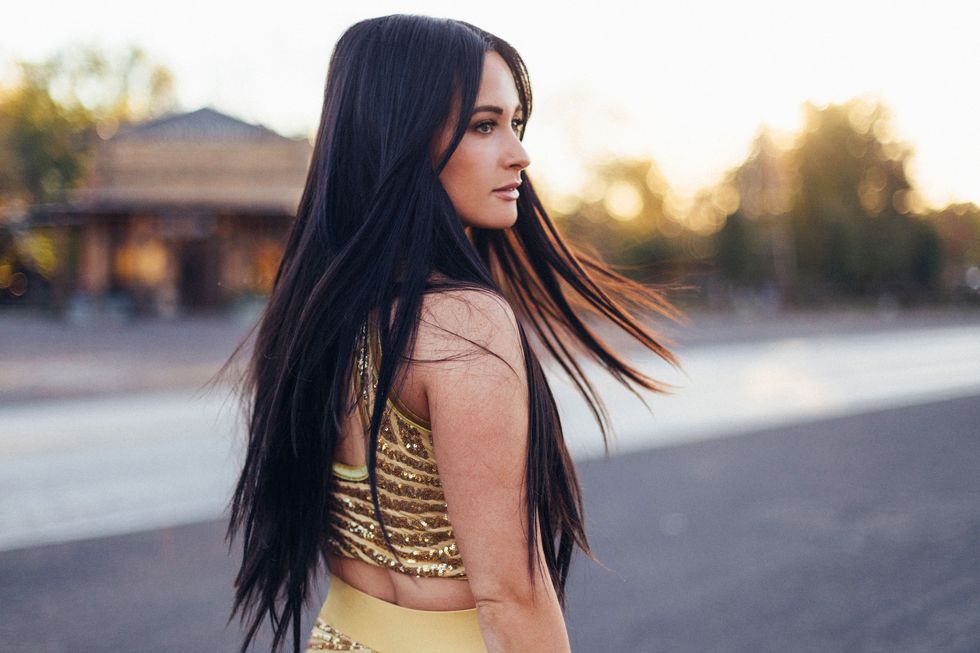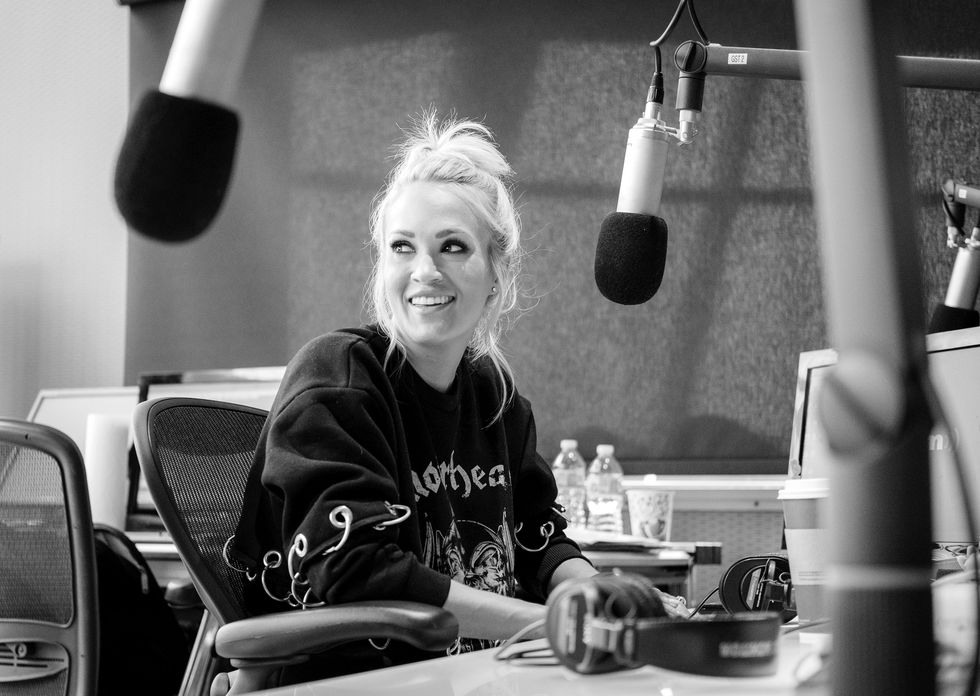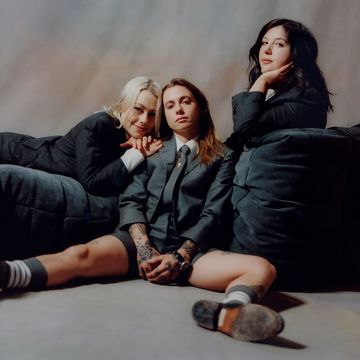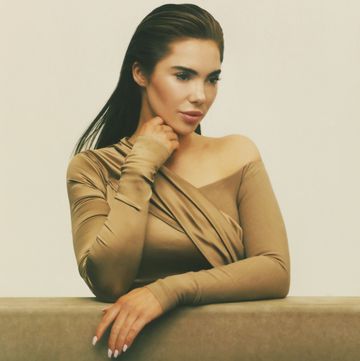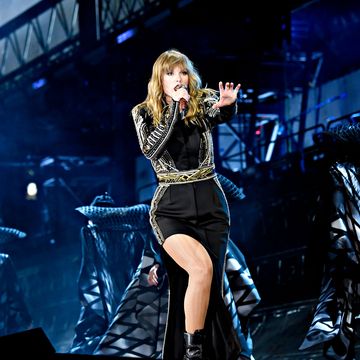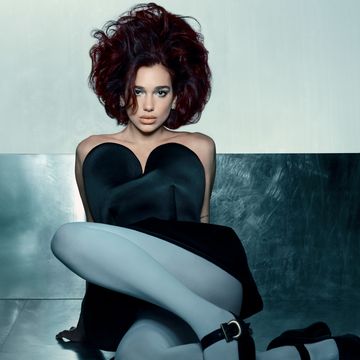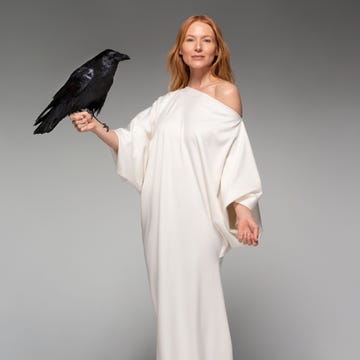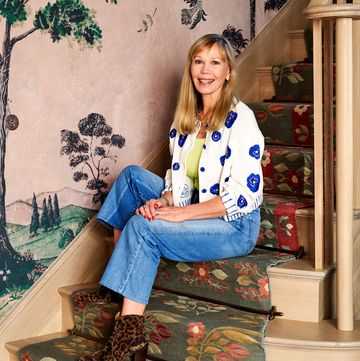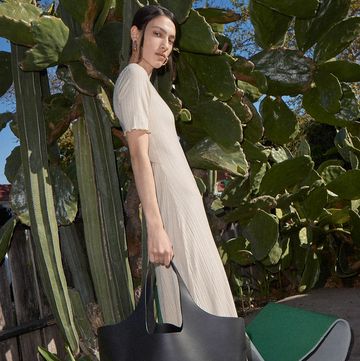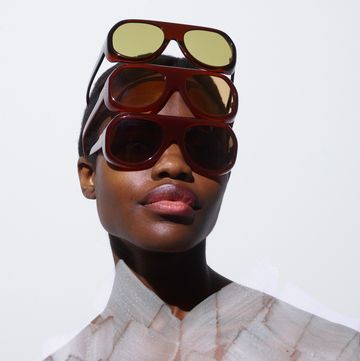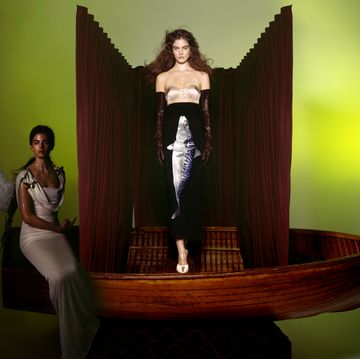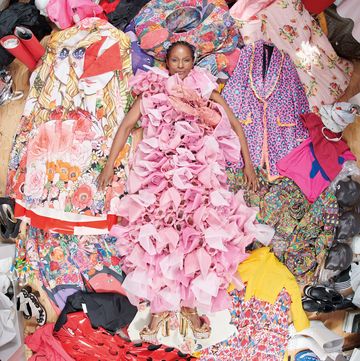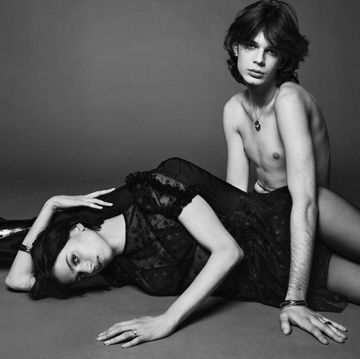It’s Monday night at the Listening Room Cafe in Nashville’s SoBro neighborhood, and the venue is nearly full for the dinner seating. The air is thick with the smell of barbecue; the servers are apologetic—they’re out of the pulled pork. We’re here to see “Song Suffragettes,” Nashville’s preeminent (and only) weekly showcase for female songwriters. The lights come up, and out strides Kalie Shorr, a regular presence on the Song Suffragettes stage, followed by four young women holding acoustic guitars. Shorr sits on the center stool. Next to her is Candi Carpenter, her best friend and occasional writing partner. The rapport between all five women is collegial and affirming. They sing along to each other’s choruses. Their collective talent is palpable—and on a few songs, chill-inducing. By way of an intro, Shorr explains why this night is necessary: “Women in Nashville deserve to be heard, even if they are not on the radio.” The audience, a few hundred deep, whoops and whistles in agreement.
In the past few years, the number of female artists on country radio has been steadily declining. According to trade publication Country Aircheck, in 2016 female artists made up 13 percent of radio play; by 2017, that figure was down to a meager 10.4 percent. The country radio programmer quota–cum–excuse that fuels this inequity is that “one woman an hour” is plenty. In response, labels have grown reluctant to sign female talent, knowing that radio won’t support them. Festival and tour promoters excuse the dearth of female country acts on lineups by pointing fingers at radio and labels, insisting that there are not enough bankable female artists to draw from—just superstar headliners like Miranda Lambert and Carrie Underwood.
All of this, as both artists and activists attest, has created an environment in which women are locked out of opportunities and subject to systemic discrimination, and one in which a growing pool of talented young women are pitted against one another. Industry insiders say that the mechanisms that help establish an artist’s career—radio airplay, recording contracts, support slots on major tours, promotional commitments from labels, festival bookings—now rarely exist for female artists. This has created two classes of women in Nashville: superstars, and those whose careers are stalled on country music’s lowest rungs.
The issue has been in plain sight in Nashville for years, though efforts to address gender inequity are more recent. Change the Conversation, an organization founded by CMT executive Leslie Fram, industry stalwart Tracy Gershon, and journalist Beverly Keel, began holding meetings with industry leaders in 2015 to raise awareness and advocate for change. The organization—and also Shorr’s career-launching anthem “Fight Like a Girl”—gained momentum in the wake of “SaladGate,” a 2015 incident in which radio consultant Keith Hill told Country Aircheck that female artists are the tomatoes, and not the lettuce, of the country music salad, and should be programmed sparingly. His evidence: In 1997, spotting a downward trend of listenership on 35-plus country stations, Hill theorized the issue was too many female artists. He tested the hypothesis with four stations, who he says saw a ratings boost after cutting the number of spins of female stars.
Political economist Devarati Ghosh’s 2015 study on gender disparity in country airplay reinforces a common theory that the less often women are played, the more jarring it can be when they do pop up. In her research, she discovered that female artists were given fewer opportunities to develop an audience or to get airplay beyond their first singles. Ghosh noted that while roughly the same number of female artists were being brought to radio as in years past, their success rate showed a significant decline.
Nevertheless, Hill’s reasoning aligns with the conventional wisdom of country programming: that female listeners of country radio don’t like to hear women’s voices. And if stations play more than 13 to 15 percent women—at least, according to Hill—ratings dip. Hill says the declining number of women on country radio is a direct result of SaladGate, not because of his comments, but rather the protest in the wake of them. “The efforts on the part of females to get more females played on country radio have actually caused the numbers to go down,” he says. “The metric always existed. All I did was give voice to it.” He suggests that the reason women don’t want to hear women is, in fact, biological. “Women have ears that hear the higher range,” he says, and the higher frequency of women’s voices is “an irritant” to them.
Kacey Musgraves, whose latest album, Golden Hour, debuted at number one on the country charts with only modest radio support, isn’t buying it. “On a recent road trip, my husband and I decided, out of sheer boredom, to listen to country radio and tally the number of males versus females we heard,” she says. “It was, not shockingly, so offensive—two females among 31 males in about a couple of hours. We also tallied the number of times—35—we heard references to a woman’s body or skimpy clothing, or the actions the man wanted her to do: cook for him, please him sexually, bring him a beer. And we’re being told women want to hear that over hearing other women?”
Carrie Underwood, whose total global sales of 65 million records have made her the biggest artist in the history of country music, agrees with Musgraves’s assessment. “I think it’s really great that there’s fan advocacy and social media support around women in country music, because there are so many incredible female artists who, for some reason, are not being given a chance,” she says. “We are told time and time again that the women listeners who make up the majority of country music radio listeners don’t want to hear other women on the radio, which I think is not true. Growing up, it was incredibly important to hear strong, amazing, talented women on the radio. It let me know that I could do that, too.”
The Nashville Women of Music Action Network (WOMAN), a group of artists and industry folks founded in the wake of #MeToo and Time’s Up, has moved toward concrete action. “Every industry was having a time of reflection, looking at how women are treated. Country music just didn’t seem to be having that same moment,” says a representative of the organization (whose members remain anonymous in order to speak freely). “It’s concerning from an economic perspective for the female artists, and then, obviously, it’s at its most severe in terms of the sexual harassment and abuse that permeate a culture where women aren’t really present as leaders, and their voices aren’t being heard.”
WOMAN’s work for a more equitable industry extends beyond airplay. As Marissa R. Moss’s recent investigation for Rolling Stone Country uncovered, sexual harassment in the realm of country radio promotion—in which young women are cajoled into sitting on programmers’ or DJs’ laps and subject to unwanted advances—is widespread. Taylor Swift’s lawsuit against the DJ who groped her in 2013 evidences a culture of entitlement inflicted upon female artists, be they upstarts or superstars. It didn’t help when, earlier this year, the disgraced DJ landed a new job co-hosting a morning show in Mississippi.
Nashville WOMAN’s tactics are a strategic pivot from the way Change the Conversation and others have been operating so far; the group is public-facing in its presentation of solutions. They tweet screenshots of what Hot Country weekly playlists would look like without male artists, often highlighting a lone female artist in rotation—naming and shaming dozens of stations directly. They’ve had some success with request campaigns and have offered research to Country Radio Seminar and advocated for Time’s Up messaging at the Country Music Association Awards. What has gotten the most notice, though, is Carrie Underwood’s Cry Pretty Tour 360, specifically, her decision to bring an all-female lineup—Maddie & Tae and Runaway June—on the road with her. Underwood says her choice was based on her desire to give young talent a boost, adding, “It’s really wonderful to see female artists supporting each other. That is one amazing thing that has come out of the lack of females being supported in country music: We are all rallying together.”
Song Suffragettes founder and promoter Todd Cassetty agrees that bold action is the answer, and that tokens and talk won’t shift anything. “Awareness is no longer the problem,” he says. “Everybody in this town knows there’s a huge problem. The problem is, nobody does anything about it.” While 200-plus performing songwriters in the Suffragettes community have landed 51 contracts (11 recording and 40 publishing) since the night began in 2014, Cassetty says there’s little traction otherwise. “There’s complete apathy about this.” The radio monoliths “could change this tomorrow,” says Cassetty, not with quotas, but simply by committing to do better.
A growing number of female artists have begun taking matters into their own hands. For Brandi Carlile, whose By the Way, I Forgive You debuted at number five on Billboard in February with negligible support from Hot Country radio, this means being the change. In July, she announced Girls Just Wanna Weekend, a destination festival with an all-female, country-leaning lineup co-headlined by Carlile and insurgent hitmakers Maren Morris, Margo Price, and the Indigo Girls, scheduled to take place in January in Riviera Maya, Mexico. Carlile’s inspiration for the festival comes from Lilith Fair, founded in 1996 by Sarah McLachlan to refute radio programmers’ refusal to play female artists back to back. That touring festival grossed over $60 million in its initial three-year run, and Carlile seeks to create a similar space of inclusion for her fans. “We want to be in the conversation—to see the pendulum swing in our direction. We want to be in the headlining slots on festivals because we’ve earned it, and to be played on radio, not as a niche or a novelty, you know?” Carlile says. “We don’t want to hear, ‘Well, we’ve got our woman on this festival lineup’ or ‘We’ve already played a woman in this hour.’ We’re not a genre. We’re half the world.”
Some corrective initiatives have been put in place—Leslie Fram’s Next Women of Country at CMT is both a year-round programming showcase and a tour; Hot Country DJ Bobby Bones’s hour-long weekend program, Women of iHeartCountry, debuted Labor Day weekend on 125 iHeartCountry stations nationwide; and the “Fresh Female Voices” feature on SiriusXM’s The Highway features three up-and-coming female artists per hour. Yet some believe these measures further sideline women. Musgraves puts it bluntly: “This whole debacle is so tired. The only thing that should be the deciding factor on a song getting widespread radio support in any genre is musical quality. Time and time again, we are shown that there is no such determining factor when it comes to what gets modern country radio play. It’s a flawed and slanted system based on the outdated politics of a desperate genre.”
Backstage after her Song Suffragettes performance, Kalie Shorr airs her opinions freely. She says that country radio probably won’t play her anyhow, and she aims to follow the example of outspoken artists like Kacey Musgraves and Margo Price, who have found success on their own terms, outside Hot Country’s biased system. “I would rather have that than some other opportunities where I would be discriminated against,” says Shorr, adding, “A lot of girls are on that train right now.” As Cassetty explains, the tide is shifting. Where once these young hopefuls were smiling and sucking it up for fear of blowing an opportunity or seeming ungrateful, he says, “now you see this cohesion of the women going, ‘Look, we have to stick together. Nothing’s changing for the better for us, so why shouldn’t we be talking about it? We have nothing left to lose.’ ”
Up in the brisk air-conditioned fourth-floor studios of CMT, a block from the Grand Ole Opry, Leslie Fram is ushering in Tenille Townes, who has recently signed to Sony, and who has been selected as one of the 10 artists for 2018’s CMT Next Women of Country spotlight. Townes, who has regulation Nashville hair (loose, flowing ringlets down past her ribs), an eager smile, and natural talent, is one of three female artists who will tape segments that morning. A fog machine burps a haze into the air as she performs her single “Somebody’s Daughter.” The scarcity of opportunity in Nashville forces such a high level of competition that even the most nascent emerging artists are, like Townes, of an impossible caliber—gorgeous and cheerful with pageant-style poise and perfect voices that sing pure Hot Country confection. Their every move must signal that they are ready and can fit right in. Maybe soon they won’t have to.
This Is Feminist Country: A Playlist
Dolly Parton’s 1968 classic “Just Because I’m a Woman” decries double standards with the lyric “My mistakes are no worse than yours just because I’m a woman.”
Loretta Lynn’s controversial 1975 hit “The Pill” extols a woman’s joy upon gaining the freedom to control her contraception with the birth control pill, which was only then coming into widespread use.
The Dixie Chicks go Top 20 in 2000 with “Goodbye Earl,” in which BFFs avenge domestic violence— and Earl’s goodbye is, uh, permanent. See also: Martina McBride’s “Independence Day” (1994) and Miranda Lambert’s “Gunpowder & Lead” (2007).
Rhiannon Giddens’s 2015 LP Tomorrow Is My Turn pays tribute to the women in Americana and country who came before her and includes covers of songs by Sister Rosetta Tharpe and Elizabeth Cotten.
Kacey Musgraves’s 2015 career breakthrough “Pageant Material” proclaims her independence and rejects a world where women are valued for their beauty and traditional femininity.
This article originally appeared in the November 2018 issue of ELLE.
